Breaking News: Western Australia bans certain disposable coffee cups in landmark move
Is this the beginning of the end for disposable coffee cups? Earlier this month, Western Australia (WA) became the first Australian state to ban non-compostable plastic-lined coffee cups, with fines for non-compliance of up to $5,000 for individuals and up to $25,000 for businesses. It is predicted the ban will prevent 150 million disposable cups ending up in landfill or littering the beaches, streets and waterways of WA every year.
Plastic disposable cups will also be banned from South Australia from September, while the more populous states of Victoria and New South Wales have introduced a raft of single-use plastic bans, including plastic straws and cutlery, but are yet to commit to banning coffee cups.
Why are coffee cups such a big deal in Australia? After World War II, Italian immigrants started introducing the espresso machine and coffee bars sprang up in cities and towns around the country. Since then, coffee has become an integral part of Australian culture. In fact, Australian coffee has gained such popularity globally that flat whites are now offered in ‘Australian’ coffee shops across Europe and the USA.
But the hidden downside of the success of the coffee culture is the disposable coffee cup. Typically made from cardboard with a plastic lining, the cups are used for just a few minutes then discarded. Unfortunately, the combination of cardboard and plastic makes them uneconomic to recycle so the majority of the 1.84 billion cups used in Australia each year end up in landfill or littering the beaches, parks and waterways. This places a heavy toll on local councils responsible for waste disposal and the many cups that end up as unsightly litter risk causing environmental harm as they break down.

But WA’s new law is not without controversy. The ban excludes compostable coffee cups and many coffee shops have already started offering the compostable variety on the understanding that these can be disposed of in FOGO (food organics, garden organics) bins from where it will be composted at industrial scale composting facilities. But with no rules or standards in place to control the labeling of items as compostable, there is concern that items will be placed in the wrong bins, potentially contaminating the entire waste system. And composable cups that escape the waste system will still end up as litter.
Jacquie Riddell, CEO of Take 3 for the Sea, commented on the controversy: “While any ban on single-use plastic items like disposable coffee cups is to be welcomed, I do wonder about the advisability of encouraging a switch to compostable cups. Discarded compostable cups will still appear on our beaches and streets as litter, and clearly there is work to be done on firming up the standards around labelling of what is and isn’t compostable to avoid compromising the waste system. The obvious answer is to reduce the amount of waste we produce. And that’s easy to do where coffee cups are concerned – simply bring your own cup, borrow one provided by the cafe, or give yourself a break and sit in the cafe to enjoy your drink.”
 It seems WA is one of the first jurisdictions to impose an outright ban on plastic disposable cups, though similar efforts can be seen around the world. The City of Berkeley, California has taken steps to limit their use by imposing a mandatory $0.25 levy on disposable cups, though there is concern this is impacting people on low incomes and unhoused people. In the UK, Parliament is considering a ‘100% recycling target’ for the cups, and Ireland has introduced a €0.20 levy, while also banning the use of the cups in sit-in customers in cafes and restaurants.
It seems WA is one of the first jurisdictions to impose an outright ban on plastic disposable cups, though similar efforts can be seen around the world. The City of Berkeley, California has taken steps to limit their use by imposing a mandatory $0.25 levy on disposable cups, though there is concern this is impacting people on low incomes and unhoused people. In the UK, Parliament is considering a ‘100% recycling target’ for the cups, and Ireland has introduced a €0.20 levy, while also banning the use of the cups in sit-in customers in cafes and restaurants.
Clearly, any measure to reduce our use of polluting single-use plastic items is a step in the right direction. But there are challenges to overcome when banning disposable coffee cups, such as the challenges of compostable cup disposal and the impact of levies on the less-well-off. Meantime, we can all contribute to solving the problem by pledging to avoid disposable coffee cups in future by choosing to use a keep cup, a borrowed cup or enjoy your coffee in a cafe.




